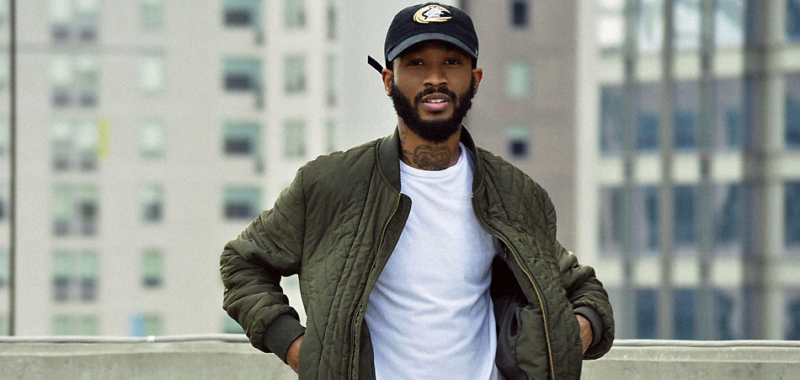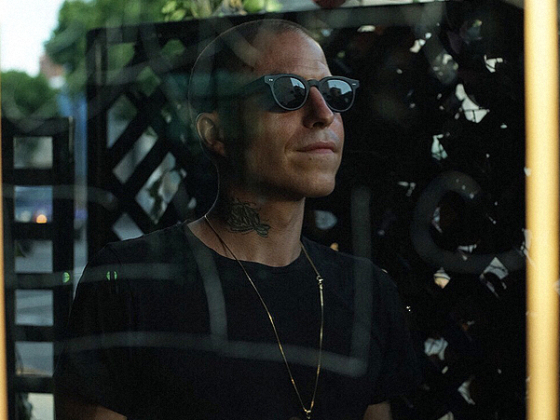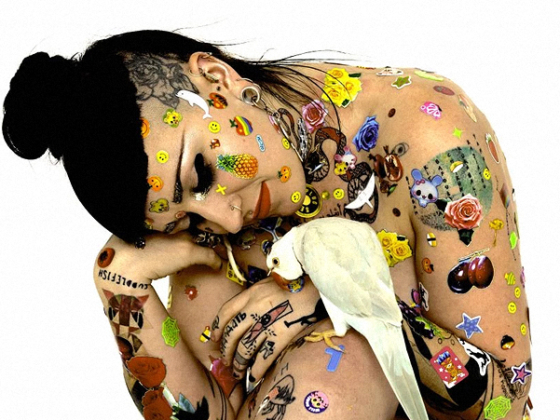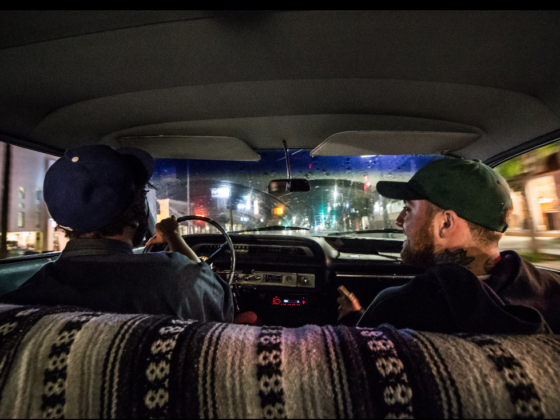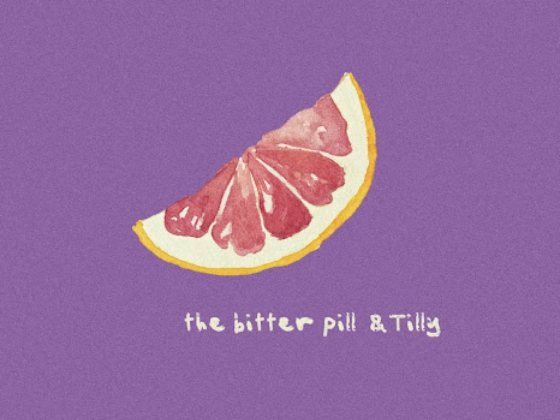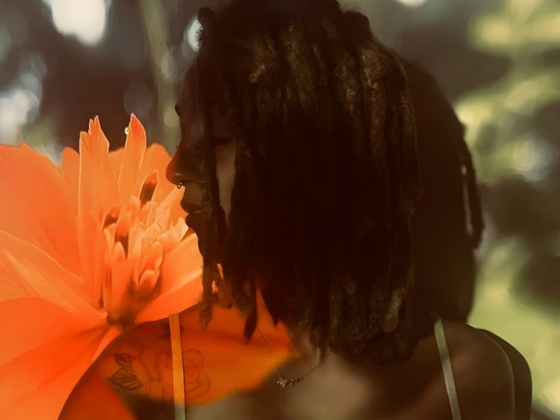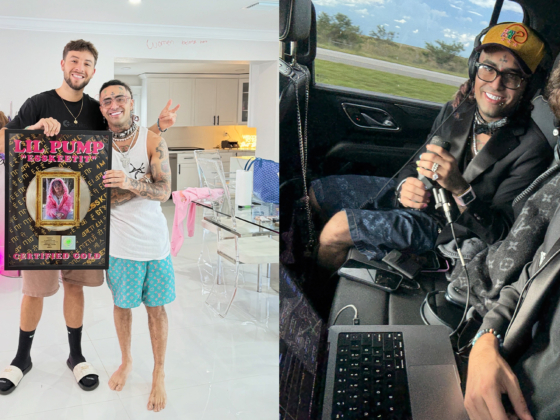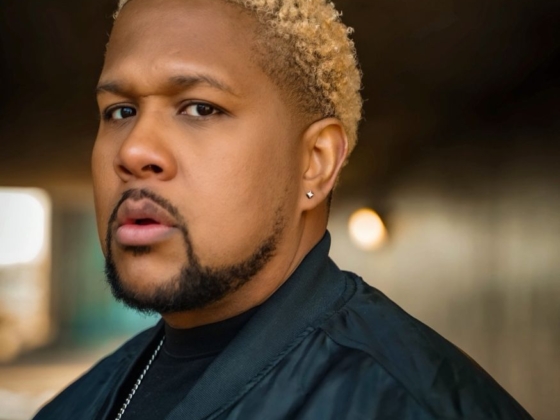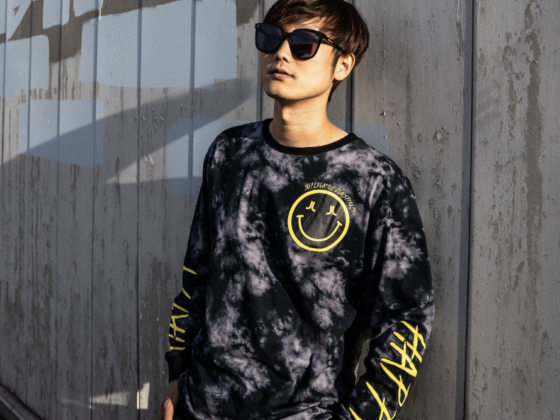Born Luther Nicholson, Lute is a unique character in the modern world of Hip-Hop. His music is raw, truthful and unedited. He raps about his hometown but not from a place of scorn or yearning to leave, but in an effort to paint an honest scenario of his situation. He's the everyman's rapper but most importantly, he's a family man.
In fact, he's so family focused he nearly ended his career to support his daughter. He faced the facts and decided that his dreams were less important than his daughter's reality. Luckily for fans, J. Cole stepped in to help. Now, the latest member of Cole's stellar Dreamville roster, Lute is giving fans a direct view into his life and the world that helped shape him and his art.
———–
EARMILK: Your album dropped a week, how are you feeling, where's your head at?
Lute: Oh man, it's crazy! It's awesome, to be honest with you. I didn't expect to be here, you know, so I'm just enjoying it and embracing everything and really taking everything for what it is and continuing to strive for it.
EM: That's awesome, that's awesome. Let's talk about the album, specifically starting with the title. Your last mixtape was West 1996, and this one is West 1996 pt 2, what does that title signify?
L: It's pretty much about me, the west side of town I come from when I first discovered Hip-Hop and the era of Hip Hop that I love and try to embrace, which is 1996. I'm from West Charlotte, so that's another reason why it's West 1996.
EM: So why did you feel that your first mixtape needed a part two?
L: It was pretty much for my fans in the beginning. Part 1 was so significant to people that I wanted it to be a sequel, but I also wanted it to be fresh to the people that were listening to part 2 for the first time under Dreamville and the platform that I have now. I wanted it to be a sequel, but I also wanted it to be fresh as well.
EM: I was watching the "Still Slummin" mini-documentary about you and the album, and I noticed you said mentioned this album was initially going to be your last. Can you tell me a little bit about how difficult it was to make that decision and what went into coming to that conclusion that this was going to be your last album?
L: It was tough. Music, and painting as well actually, but being creative in general, are things I love to do. Those are my only outlets; I didn't graduate high school, so I was banking on my music and my art. But when my daughter came, it was like 'damn, the publicity from 1996 pt 1, it was cool, but at the same time, likes and retweets aren't keeping my lights on.'And then on top of it, I've got people constantly telling me 'yo when are you going to drop new music. When are you going to do this, when are you going to do that?' And my head at the time wasn't into making music; it was making sure I had a roof over my head and figuring out when's my next paycheck coming so I can feed my daughter. So I told myself, I'll give my fans one more take, but that's it for me because now I've got to thug this out. I've got to keep a roof over my head and maintain these bills. And as I was creating this project it was hard to come to terms that it was going to be my last project because everything was coming out so fluently.
EM: Damn, that's got to be brutal!
L: Yeah man.
Em: Going off of all of that, what was it like getting that call from J. Cole saying, 'Yo I want you on the label, don't put the album out quite yet.' Can you tell me a little bit about what that felt like?
L: Well ya, see at the time, when he gave me that phone call, he wasn't even trying to sign me yet. He was just saying 'I love the project, I can hear the pain in your voice, I just want to help you get to where you want to go, and I want to help get the project out to the people.' So he was just trying to use his resources to help me. Eventually, he was like, 'You know what, I'm just going to sign this guy myself.' But that didn't happen until like a year later.
EM: Wow, what was that like?!
L: It was so crazy to get a phone call from him! I had met him in 2012, so I already had his name saved in my phone. So when he called that night, and I saw "J. Cole" pop up, I was like 'ahh shit,' you know [laughs] because I was about to drop the project that night. So I'm up, getting ready, getting links ready to post in the morning and he called, and I'm like 'oh shit.' I answer the phone and he's like 'ya man, I really loved the project, I hear the pain, I hear the emotion, I just feel like I need to help. I want to help you somehow, some way, so if you can hold onto it for me, I can help. You can drop it if you want but I want to help.' And me thinking in my head, well, this is supposed to be my last project, so why not trust his word and hold on to it and see what happens.
EM: Wow, that's an insane story. I didn't realize that he just wanted to help. What a guy.
L: Ya, he just wanted to help! He wasn't talking about singing or anything; he just wanted to help. He knew I had a daughter, and he was like 'Man, I just want to find a way to make sure you're daughter is taken care of, and you're recording, and you're getting more things out.' I was in a tough situation at that time. I had just lost my apartment, and I had moved back with my mom, and I just got fired from Target, so…
EM: Damn, that's wild. Let me dive into one of my favorite tracks, "Git Up," for a moment. The chorus on it is fantastic because you deliver this great image when you say 'get off your high horse.' I think that's such a good thing to say, especially these days for younger fans because sometimes that's life, right? Sometimes you have to get your hands dirty and put in the work. Can you tell me a little bit more about that song and how it came together? And tell me why you wanted to put that on the album?
L: Well ya, I had just got fired from Wal-Mart when I wrote that song. So, the whole project, West 1996 pt 2 is a timeline, and it starts with me waking up and then leading to me eventually getting signed. So, with that one, I had just gotten fired, and it's pretty much telling you, 'get up off your high horse. Sometimes you have to use your job as a stepping stone, and sometimes you just have to grind it out.' So with that one, I was talking about my daughter's mom and me at the time and how we were going through things and just trying to elevate, go out and get it.
EM: Totally and you did a great job, it's one of my favorites off of the album. Not only does it sound great, it has a great chorus, you can sing along to it, and the verses are dope, but I think the message is critical. Sometimes, you've got to get off your high horse and get the work done.
L: Ya man. Even with jobs sometimes you say, 'Nah, I can't work there because I'm way better than that.' But when the rent is due, you have to chop it up; you've got to get up off that high horse and take that loss real quick to get that gain.
EM: Agreed man. Going off of that, when I was first listening to the album, it seemed to me that it was the anthem for the working man. You're putting in your time and doing the work, and things like that. But as I listened more, it almost came across about the anthem for being a parent. Doing whatever it takes not just to survive but do right by your kids and support your family. "Git Up" is again a perfect example; you're doing this for your daughter. Can you tell me a bit about how having your daughter effected you, your music and your life?
L: Oh ya, if it weren't for my daughter, there wouldn't be a West 1996 pt 2. There wouldn't be any Dreamville signing; there wouldn't be any of this. She helped me tap into myself and allow me to open up. I'm a very reserved person, but when my daughter came, she allowed me to open up and really, she taught me patience. Not even just as a father, but as an artist as well. She's the inspiration behind all of this. That's why I felt that it was only right to put her on the cover, it was only right to have her in the voicemail on the song and things like that. So everything I did, everything I did up until this project I made sure I incorporated my daughter because, without her, there wouldn't be any of this.
EM: Yeah, I noticed that. That's one of the things that I picked up on; she's on the cover, she's in all of the videos, it seems like you're doing it for her.
L: You know, as I said, I didn't graduate so I'm not getting the greatest jobs. And my father was in my life, but probably not as much as I would have liked. I'm not saying it's his fault or anything, but just with that in mind, I don't want to seem like a failure to her. I want her to have better things than I had or live in a better situation than I am, you know?
EM: Of course man.
L: So I was like, 'You know if I've got to make the sacrifice by not rapping again or sticking with whatever 9-5 job I have and move up in the work area, it is what it is.'
EM: That's one of the things I noticed in that 'Still Slummin' mini-doc. You did this thing where you would get a job and pick somebody out who was working there the longest-
L: Right, whoever was there the longest I would say 'Okay, don't be that guy. I can't be that guy.' But then I realized when my daughter came; you know what, I've got to be that guy. That's where 'getting up off your high horse' comes in. At one point I realized, 'you know what, all this stuff that I felt I was too high and mighty for, I'm going to have to do. I'm going to have to make that sacrifice. I'm going to have to chop this up and be a man.
EM: Something interesting in Hip Hop these days is that being flashy or exhibiting wealth is common. Just about everybody is living that or pretending to live an incredibly flashy life. You, on the other hand, are very down to earth and authentic. I'm only speaking with you for the first time today, but even in the conversation we've had so far, how you portray yourself in the album and videos, it seems like the real you.
L: I've never been a fan of the 'Fake it till you make it' quote. Plus, hell, I was too broke to even look like I'm trying to be rich. I just realized I've got to give people me. Like, 'This is who I am.' And not only that but as an artist, I want to make music to where people come out and see me in person and they still have that same connection. You know, I know sometimes you meet somebody, or you meet an artist, and they say one thing, but when you meet them in person, it's like, ' Damn, that's not the same guy.' It's just like, I might as well just give people me, and I might as well just stick to what I'm doing. I can't do anything else anyway, so hey, you do what you've got. This is me in the flesh. When I write certain things, I want people to feel like they knew me before they got to know me. So then when they get to know me, we have a lot to talk about, if that makes any sense.
EM: It makes total sense!
L: Like, if I meet somebody and they're like, 'Oh I've got a daughter too, and this is what we do,' we have a lot of things to talk about.
EM: Nah, that's awesome. It's crazy that that is considered, "refreshing" given the fact most people don't do that. But I admire and appreciate that. I know you said you didn't have the choice but was that a hard issue to face?
L: I didn't have the money like that. I didn't have the money to be all flashy. I was so used to holding onto cash instead of throwing it away that it didn't make sense to me. It didn't come out in my music either. I felt like everything had to match. My personality has to match my music, and my music has to match my personality. So when I meet these people out here in the public eye, it has to match. Everything has to match. I have to be genuine, and I have to give as much of me as I can.
EM: What do you think of that in general? What do you think of the fact that so much of today's music is overly flashy and how it gives young kids the wrong expectations?
L: I think, sometimes it's needed in music. I don't make the same kind of music as most artists, but some people need it for who they are. And then, some people don't. Even, for example, Cole. He doesn't need need to be flashy.
EM: Right, which is one of the things I love about him.
L: Right, and he's still where is. For some people, it's needed, for some people it's not. I'm not saying it's a great or bad thing. To each his own, I guess.
EM: That's a good way to look at it. Well, I've got one last question for you. You just released a project, what's next for Lute going forward?
L: I don't know, to be honest. I've been working on different things. I've been directing videos and writing songs. I'm trying to get into different genres. I don't want to be known just as a Hip-Hop artist. I want to dib and dab in various genres in the next couple years and do different things. There's a lot to come; there's a lot to come. You'll just have to wait and see.
EM: Alright man, well that's it. Anything else you'd like to add onto the end of the interview?
L: I just want people to know that you are all far greater than your circumstance.
Connect with Lute: SoundCloud | Instagram | Twitter

